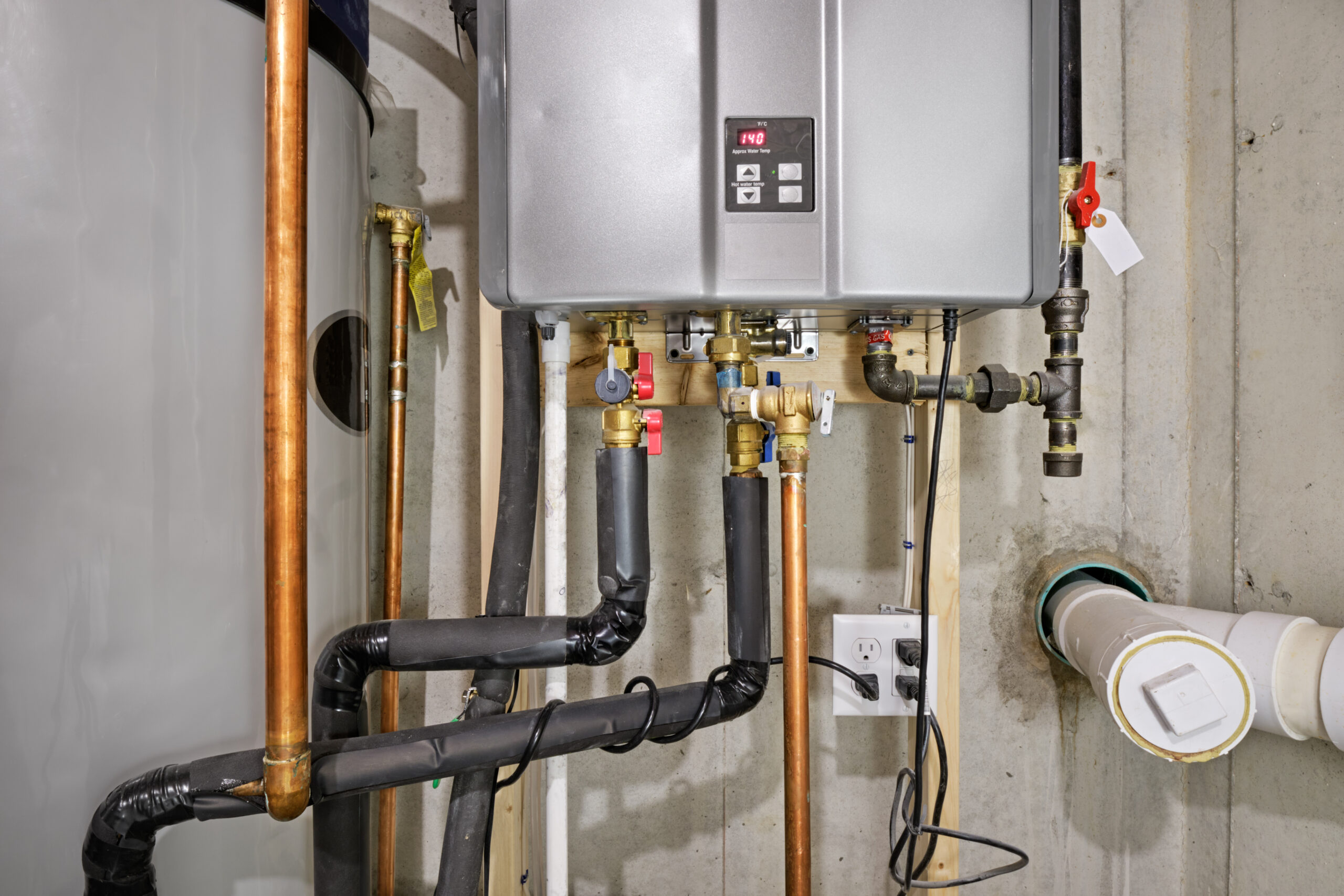Choosing between a tankless vs traditional water heater is a major decision for homeowners looking to upgrade their hot water system. Each option has unique benefits and considerations, and understanding the differences can help you select the best fit for your household.
How Do Tankless and Traditional Water Heaters Work?
Traditional water heaters store a large volume of water in a tank and keep it heated at all times, ready for use. In contrast, tankless water heaters heat water on demand, providing hot water only when you need it. This fundamental difference impacts energy use, space requirements, and long-term costs.
Pros and Cons of Tankless Water Heaters
- Energy Efficiency – Tankless models are typically 24%-34% more energy efficient for homes using less than 41 gallons of hot water daily, according to the U.S. Department of Energy.
- Endless Hot Water – You’ll never run out of hot water, even during back-to-back showers.
- Space Saving – Tankless units are compact and wall-mounted, freeing up floor space.
- Longer Lifespan – Most last over 20 years, compared to 10-15 years for tank models.
- Higher Upfront Cost – Installation and equipment costs are generally higher than traditional units.
- May Require Upgrades – Some homes need electrical or gas line upgrades for installation.
Pros and Cons of Traditional Water Heaters
- Lower Initial Cost – Traditional tank water heaters are less expensive to purchase and install.
- Simple Installation – Most homes are already set up for tank water heaters, making replacement easy.
- Limited Hot Water Supply – Once the tank is empty, you must wait for it to refill and reheat.
- Higher Energy Bills – Keeping water hot 24/7 uses more energy, especially in larger households.
- Shorter Lifespan – Typically last 10-15 years before needing replacement.
Which Is More Cost-Effective?
While tankless water heaters have a higher upfront cost, they can save you money over time. According to Consumer Reports, tankless models can be 22% more energy efficient on average, potentially saving hundreds of dollars in utility bills over their lifespan.
However, the payback period depends on your household’s hot water usage and local energy rates. For families with high hot water demand, a traditional tank may be more practical.
Installation and Maintenance Considerations
Tankless water heaters require professional installation and may need upgrades to your home’s gas or electrical systems. They also benefit from annual maintenance to prevent mineral buildup. Traditional water heaters are easier to install and maintain but may require more frequent repairs as they age.
Environmental Impact
Tankless water heaters are generally more environmentally friendly due to their energy efficiency and longer lifespan. Reducing energy consumption helps lower your home’s carbon footprint.
Which Option Is Right for You?
When deciding between a tankless vs traditional water heater, consider:
- Your household’s daily hot water usage
- Available installation space
- Budget for upfront costs and long-term savings
- Willingness to upgrade home systems if needed
Consulting a professional plumber can help you assess your needs and choose the best system.
For more details on water heater options and installation, visit our Water Heaters page.
Why Choose Beis Plumbing?
Beis Plumbing offers expert advice and installation for both tankless and traditional water heaters. Our licensed technicians provide personalized recommendations, same-day service, and flexible financing options to make your upgrade easy.
Ready to Upgrade Your Water Heater?
Contact Beis Plumbing today to schedule a consultation or book your installation. We’ll help you find the perfect solution for your home’s hot water needs.

